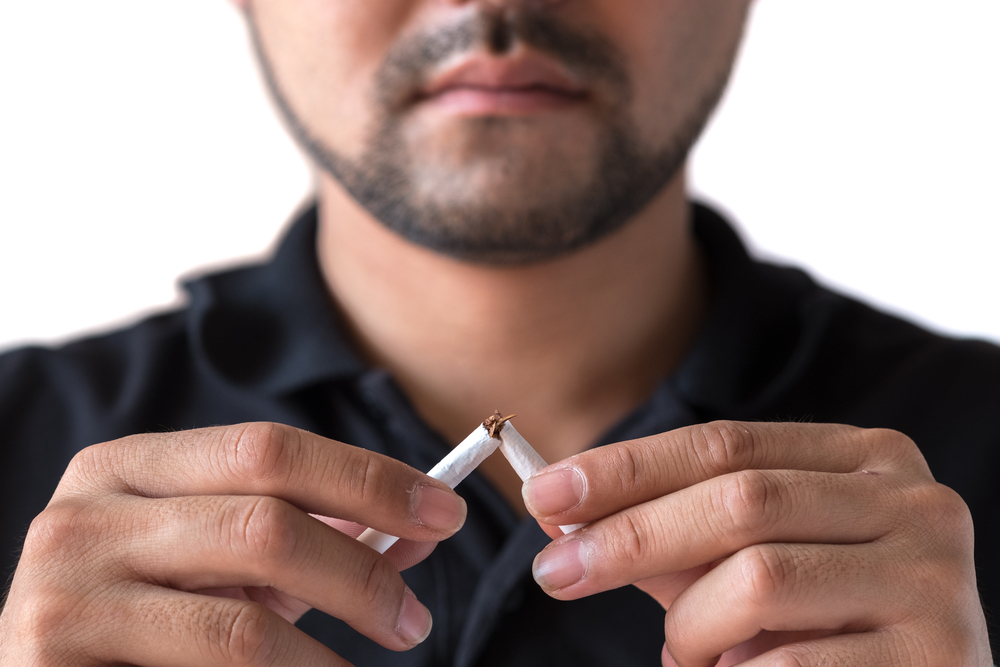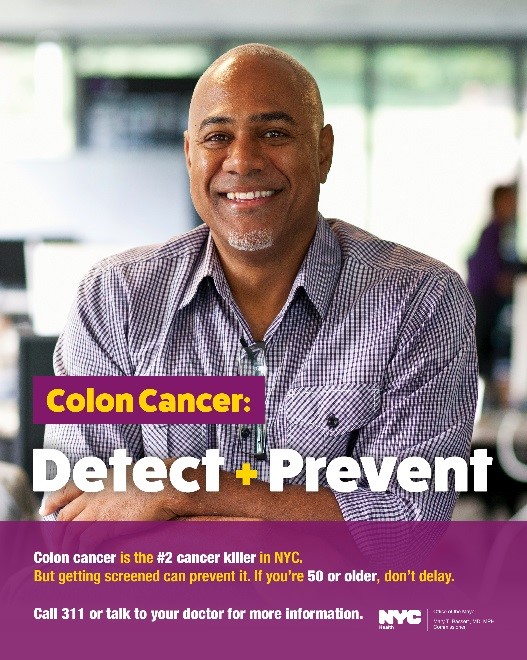
 Office of Labor Relations311
Office of Labor Relations311 Search all NYC.gov websites
Search all NYC.gov websites

Did you know that colon cancer is the second leading cause of cancer death in NYC?
Your colon cancer risk increases with:
- Obesity
- Physical inactivity
- Smoking
- Drinking alcohol
Luckily, you can lower your risk with a healthy lifestyle.
Maintain a healthy weight
You can maintain a healthy weight by getting enough physical activity
and eating a healthy diet. Learn More

- Adults should get at least 30 minutes of physical activity a day, five days a week.
- Shape Up NYC offers free fitness classes in all five boroughs. Registration is not required.
- Choose high-fiber foods like fruits, vegetables, beans and whole grains to feel fuller longer and on fewer calories.
- Check out the Guide to Healthy Eating and Active Living in NYC for tips for creating healthy habits.
- Make one of these healthy recipes.
Avoid risky alcohol use
Learn about risky drinking and find help if you need it. Learn More

Learn more about what risky drinking is and the health impact it can have on you.
- Visit nyc.gov/health and search “alcohol & health” for more information on how alcohol affects health.
- If you think you or someone you care about has a problem with alcohol, help is available from the City and from the NYC Employee Assistance Program (EAP).
Quit Smoking
Find resources and support to help you quit for good. Learn More

Smoking increases your risk for colon cancer, as well as heart disease, stroke, diabetes, emphysema and other cancers.
Quitting reduces your risk of developing these illnesses. The sooner you quit smoking, the sooner your body begins to heal.
- Click here to learn more about free resources to help you quit, including the HelpMeQuit App and the Employee Smoking Cessation Assistance Program (ESCAPE), which is available for all New York City employees and their household members who would like to quit smoking.
Get Screened
Understand when and how to get screened for colon cancer. Learn More

Routine screenings can help doctors find colon cancer early, when it is easier to treat.
A colonoscopy can remove polyps — small growths that may develop into cancer if left alone — before they turn into cancer. A colonoscopy is safe and usually painless.
For most people, a colonoscopy is usually needed only once every 10 years, if test results are negative.
Ask your provider about the benefits and risks of colon cancer screening.
If you don’t have a health care provider, click here to find one in your network.
- If you are 50 years or older, you should have a colonoscopy every 10 years.
- If you are at increased risk for colon cancer based on family history or other health risks, talk to your doctor to find out what age is appropriate for you to begin screening and how often you should get tested.
- Annual stool testing with high-sensitivity fecal occult blood testing (FOBT) is an alternative if you don’t want or cannot have a colonoscopy.


